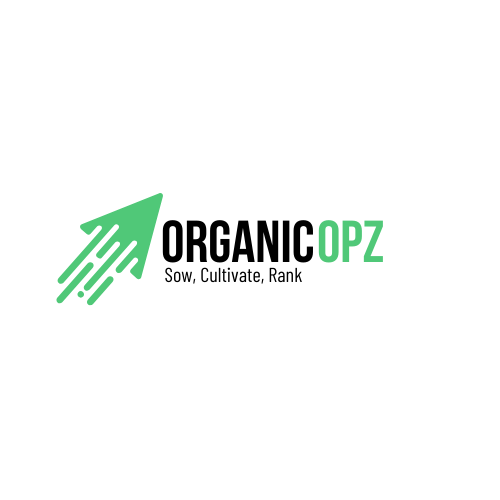Using Analytics to Optimize Your Organic Marketing Strategy
 OrganicOpz
OrganicOpzOptimizing your organic marketing strategy through analytics involves using data to make informed decisions and improve your marketing efforts. Here are the key steps and considerations for leveraging analytics effectively:
1. Set Clear Goals and KPIs
Define Objectives: Determine what you want to achieve with your organic marketing efforts (e.g., increased website traffic, higher engagement, more leads, better search engine rankings).
Key Performance Indicators (KPIs): Identify the metrics that will help you measure success, such as organic traffic, bounce rate, conversion rate, social media engagement, and keyword rankings.
2. Collect Data
Web Analytics: Use tools like Google Analytics to track website traffic, user behavior, and conversion rates.
SEO Tools: Utilize tools like Google Search Console, SEMrush, or Ahrefs to monitor keyword performance, backlinks, and site health.
Social Media Analytics: Platforms like Facebook Insights, Twitter Analytics, and LinkedIn Analytics provide data on engagement, reach, and audience demographics.
Content Performance: Analyze data from content management systems (CMS) and tools like BuzzSumo to understand which content pieces are driving the most traffic and engagement.
3. Analyze Data
Audience Analysis: Understand who your audience is, their demographics, interests, and behavior. Use this data to tailor your content and marketing messages.
Traffic Sources: Identify where your organic traffic is coming from (e.g., search engines, social media, direct visits) and focus on the most effective channels.
Content Performance: Determine which content types (blogs, videos, infographics) and topics resonate most with your audience.
Keyword Analysis: Analyze which keywords are driving traffic and conversions. Look for opportunities to target new keywords or optimize existing content.
4. Optimize Your Strategy
SEO Optimization: Improve on-page SEO elements (title tags, meta descriptions, headers) and off-page SEO (backlinks, social signals) based on your analysis.
Content Strategy: Create high-quality, relevant content that aligns with your audience's interests and needs. Use data to guide your content calendar and topics.
Social Media Strategy: Focus on the platforms and content types that generate the most engagement. Adjust your posting frequency and timing based on analytics.
User Experience (UX): Improve website design, load times, and navigation to enhance user experience and reduce bounce rates.
5. Test and Iterate
A/B Testing: Conduct A/B tests on various elements of your marketing campaigns (headlines, images, calls to action) to determine what works best.
Continuous Improvement: Regularly review your analytics data and make adjustments to your strategy. Stay agile and be willing to pivot based on new insights.
6. Reporting and Dashboarding
Regular Reports: Create regular reports to track progress towards your goals and KPIs. Use these reports to communicate results to stakeholders.
Dashboards: Set up real-time dashboards using tools like Google Data Studio or Tableau to visualize your data and monitor key metrics at a glance.
7. Stay Updated
Industry Trends: Keep up with the latest trends in SEO, social media, and content marketing to stay ahead of the competition.
Algorithm Changes: Be aware of updates to search engine algorithms and social media platform changes that could impact your strategy.
Conclusion
Using analytics to optimize your organic marketing strategy is an ongoing process that involves setting clear goals, collecting and analyzing data, making informed decisions, and continuously testing and improving your efforts. By leveraging data effectively, you can enhance your organic marketing performance and achieve better results.
Subscribe to my newsletter
Read articles from OrganicOpz directly inside your inbox. Subscribe to the newsletter, and don't miss out.
Written by

OrganicOpz
OrganicOpz
Welcome to OrganicOpz, your partner in cultivating organic growth and optimizing your online presence. We specialize in personalized SEO strategies designed to help you rank higher, attract more organic traffic, and achieve long-term success in the digital landscape.